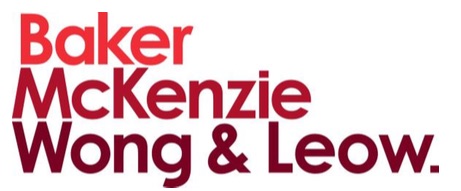6 September, 2019
On 7 August 2019, 46 States signed the United Nations Convention on International Settlement Agreements Resulting from Mediation, at an official signing ceremony held in Singapore. Known as the “Singapore Mediation Convention” (the "Convention"), the Convention aims to facilitate the enforcement and invocation of settlement agreements resulting from mediation.
Mediation in Singapore
Mediation is a type of dispute resolution, whereby two parties attempt to reach a mutually acceptable solution to their issues, with a third party (the mediator) facilitating the discussion.
In Singapore there has been ample growth in both mediation services and regulation. In 2014, the Singapore International Mediation Centre ("SIMC") was set up to provide commercial mediation services and in 2016 the Singapore International Dispute Resolution Academy ("SIDRA") was set up for research and training purposes.
Most significantly, the Mediation Act entered into force from November 2017. The legislation allowed for settlement agreements that were typically only contractually enforceable to be recorded and enforced as orders of court upon application by a party.
However, for cross-border settlement agreements there was no framework of enforcement in situations where parties agreed to court proceedings in one jurisdiction but enforcement was required against assets in another jurisdiction. This reduced reliance on an otherwise more timely and cost-effective means of dispute resolution.
The Convention and its Benefits
The Singapore Mediation Convention centralizes and simplifies enforcement of settlement agreements resulting from mediation – completing the existing international dispute resolution framework made up by The New York Convention regarding enforcement of arbitral awards and The Hague Convention on the Choice of Court Agreements for enforcing court judgements.
The Convention defines a clear scope of application where it will only apply to i) international agreements resulting from mediation ii) mediation that is concluded in writing iii) mediation that is used to solve a commercial dispute. The Convention does not apply to settlement agreements enforceable by court judgement or as an arbitral award, agreements relating to family, inheritance or employment law, or agreements concluded before the Convention’s entry into force for the relevant signatory.
If enforcement is sought, a party must show:
-
a signed settlement agreement;
-
evidence the settlement agreement resulted from mediation (e.g. the
mediator’s signature on the settlement agreement or evidence the competent authority deems acceptable, in case of a mediator being unwilling or unable to sign a settlement agreement).
The Convention does not prescribe a specific mode of enforcement, only that enforcement occurs in accordance with a state party’s own rules of procedure. Considering the current variance in mediation legislation and practice globally, the breadth of the Convention’s application is suitable for enforcement of agreements across diverging jurisdictions that are signatory to the Convention.
The relevant authority can refuse to enforce the settlement agreement if:
-
a party to the settlement was under some incapacity;
-
the settlement agreement is null, void, not binding or subsequently
modified;
-
the obligations in the settlement are incomprehensible or already
performed;
-
to grant relief would be contrary to the agreement terms;
-
there was a serious breach by the mediator of standards applicable to
the mediator or mediation, without which breach that party would not
have entered into the settlement agreement;
-
there was a failure by the mediator to disclose to the parties
circumstances that raise justifiable doubts as to the mediator’s impartiality or independence and such failure had a material impact or undue influence on a party without which failure that party would not have entered into a settlement agreement;
-
granting relief would be contrary to the public policy of that State;
-
the subject matter under dispute is not capable of settlement by mediation under the law of that State.
A limited list of defences are available against enforcement, similar to the exceptions under the New York Convention, which means in practice it may be difficult to argue against enforcement of a settlement agreement.
By streamlining standards of enforcement, the requirements for reliance and the grounds for refusing relief, the Convention enables international businesses to enforce settlement agreements under Convention conditions, or invoke a settlement agreement to prove a matter has already been resolved.
What It Means For You?
During the official signing ceremony, 46 States signed the Singapore Mediation Convention including Singapore, China, the US, India, Malaysia, and the Philippines. Notably, the UK, European Union and Australia have not signed the Convention. The Convention will enter into force 6 months after 3 states have approved or ratified it.
The Convention is a positive step towards formalizing settlement agreements entered into via mediation. Parties involved in cross-border matters and transactions are now more likely to consider mediation as a suitable option for dispute resolution, particularly considering the time and cost effectiveness of mediation. With the Convention, parties can now have added assurance that settlement agreements will be enforceable under the Convention provided the parties' States are signatories to the Convention.
For further information, please contact:
Nandakumar Ponniya , Principal, Baker & McKenzie.Wong & Leow
nandakumar.ponniya@bakermckenzie. com





